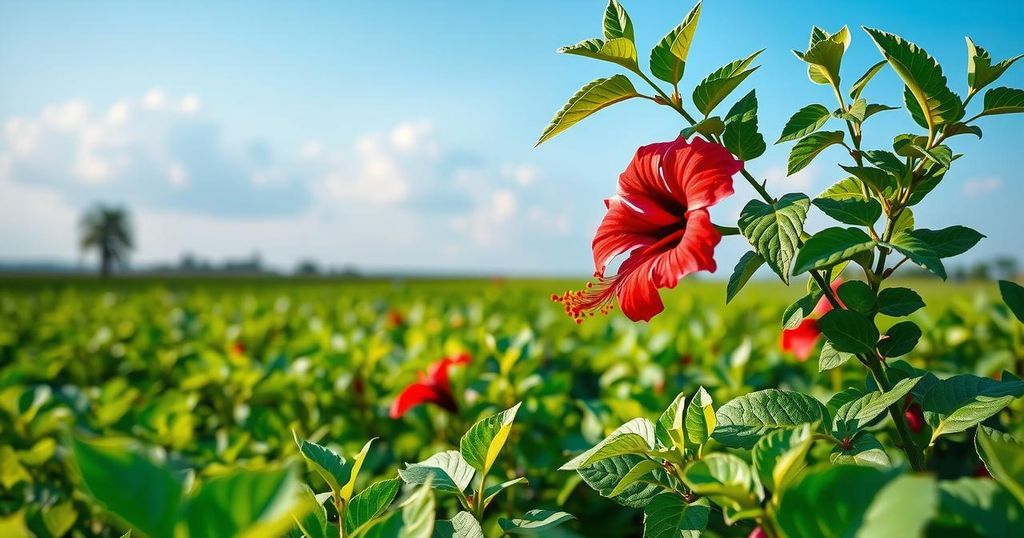The World Food Programme asserts that farming moringa, hibiscus, and cowpeas could generate billions for Lake Chad, contingent on improved peace and agricultural development. At the 5th Lake Chad Governors’ Forum, WFP’s David Steveson highlighted the importance of regional cooperation and modern farming techniques to combat food shortages affecting millions in the area.
The World Food Programme (WFP) has stated that cultivating crops such as moringa, hibiscus, and cowpeas could potentially generate billions of dollars for the Lake Chad region, contingent upon advancements in peace and agricultural practices.
David Steveson, the WFP Country Representative, articulated these insights at the 5th Lake Chad Governors’ Forum held in Maiduguri, Borno State. He highlighted the promise of the African Continental Free Trade Agreement (AfCFTA) in enhancing regional trade, emphasizing that reviving agriculture and livestock production is crucial for economic recovery.
Steveson pointed out that the Lake Chad region is endowed with a competitive edge in livestock farming, once home to one of the largest livestock populations in West and Central Africa. However, he expressed concern over the stark realities of food shortages affecting over seven million residents, while conflict and environmental challenges have displaced more than three million individuals.
The WFP representative called upon the governments of Nigeria, Niger, Chad, and Cameroon, alongside regional organizations, to forge stronger partnerships and implement policies aimed at bolstering agricultural, livestock, and fisheries activities in the area. He advocated for a transition to modern farming techniques that would bolster food production while being mindful of ecosystem sustainability.
During the Forum’s second day, participants stressed the necessity of regional cooperation to revitalize agriculture, improve food security, and confront climate change and insecurity in the Lake Chad Basin. Delegates noted that a significant majority, approximately 80 to 90 percent, of the region’s 50 million people depend upon farming, livestock rearing, and fishing, all significantly impacted by climate conditions.
Borno State Governor Babagana Zulum urged the adoption of long-term strategies to counter climate change’s effects. He proposed the advancement of climate-resilient agricultural practices and the development of infrastructure to safeguard livelihoods and enhance food security. Additionally, he emphasized research into climate-resilient crops and farming methods to ensure both food sufficiency and affordability.
Furthermore, the governor called for the establishment of large-scale irrigation farms to combat food insecurity within the Lake Chad Basin. Senator Abubakar Kyari, Minister of Agriculture and Food Security, echoed these sentiments, noting that effective utilization of the region’s vast arable land could significantly bolster regional food security.
The Lake Chad region has vast agricultural potential, hosting crops and livestock that can thrive under the right conditions. The ongoing challenges posed by conflict, environmental degradation, and climate change have created a dire need for strategic agricultural development. The African Continental Free Trade Agreement represents an opportunity for the region to enhance trade and economic stability, particularly through agricultural innovation and collaboration among neighboring nations.
In conclusion, the Lake Chad region holds significant potential for economic growth through the cultivation of crops such as moringa and hibiscus, alongside livestock farming. However, this potential can only be realized through improved cooperation among governments, investment in modern agricultural practices, and adaptation to climate challenges. Addressing the urgent food security issues and revitalizing agricultural sectors is essential for the region’s stability and prosperity.
Original Source: dailytrust.com




